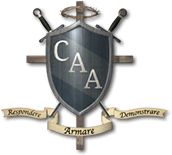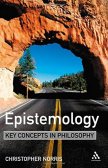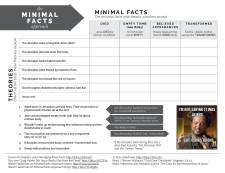 I panned Rick Warren’s “Bible Study Methods” for nuggets which can be used in this Bible Narrative Project study.
I panned Rick Warren’s “Bible Study Methods” for nuggets which can be used in this Bible Narrative Project study.
The emphasis will be on observing, asking questions, interpreting and applying—recording everything in a journal, and sharing at least some of it at the Project.
Tools: Zondervan’s NASB Study Bible. I also have an exhaustive concordance, a Bible dictionary, lexicons, atlas, a Bible handbook and other tools. I will also use www.biblestudytools.com for additional translations and easier-to-use lexicons, as well as commentaries, et cetera.
Method:
Some nights I’ll be lucky if I get the passage read, but I will count myself fortunate if I am able to accomplish this sort of study at least once a week:
Read: Without stopping, without consulting any tools, read the passage quietly aloud in at least three different translations.
Title: Give the passage a title. Return to this at the end of the study and adjust if necessary.
Book Introduction: When a book of the Bible is being introduced, I will link to book overviews. I will also want to study things like the handbook, atlas, et cetera.
Sum It Up: Is this book history? Poetry? Prophecy? Law? A biography? A letter? What is the purpose and mood of the writer and his writing (how does it make you feel?)? Is the book organized around people? Events? Places? Ideas? Time spans? Name (in four or less picturesque, unique words from the text) the chapters, main divisions, and paragraphs. Summarize or outline the passage’s contents without interpreting them. Compare your outline with other outlines.
Who? – List the main players in the narrative, and their rolls. Perhaps link to overviews of particular individuals.
Key verse: Pick a key verse that resonates, a verse summarizing the heart of the passage (perhaps memorize it, or at least record it in a special notebook or file).
Key words: Are any words carrying a heavier load than the others—do they seem frequently used, important or confusing? List it/them, define them, find their root words, and see how they are translated, using an English dictionary, lexicons, concordances, et cetera.
Questions: At any point in the study, record when something is confusing or something looks worthy of further study. Good questions are important…ask the Who? What? When? Where? Why? and How? questions. Are there any ‘striking’ topics that seem to come up in the passage?
Christ: What is revealed in the passage about the nature/attributes of the Father, Son or Holy Spirit? If there is a particular attribute in focus, how does the Bible dictionary or other tools define it, how does it define its “opposite”? How does having that attribute affect the life of the person or group? If this person or group has come up in earlier passages, have they been shaped by previous challenges (if so, how?)? How can I relate?
Cross-references: Look up the verses that are listed as cross-references or/and that can be found when studying an attribute/topic/word—how do they shed light on the passage, on the questions and (if applicable) on an attribute/topic/word? Use at least 3 different translations. Record these things.
Insights: What is the take-away lesson intended by the author of the passage?
Commentaries: What do three different commentaries say about the passage?
Wrap It Up: Outline the findings of the study in a way that can be shared with others. Include questions still needing to be answered, for a future study. Record the tools I found useful in my study.
Application: How can I develop the attribute or apply the take-away lesson? How does my study of the key words open my eyes to spiritual truth that I can apply in my life? Also, write my thoughts down as I visualize myself in the narrative, read key sentences over again emphasizing a different word in the sentence each time, paraphrase it in my own words, put myself in the pronouns, turn it into a prayer back to God—then write out possible applications which are personal, practical, possible and provable (measurable). Develop a project to implement ‘one’ possible application. [Remember to be motivated ‘from’ God’s unconditional love, not ‘for’ it, and be thankful that, even though you cannot implement all the possible applications, God’s love never changes.]
Results: Record the results of my project. Serves the same purpose as recording answers to prayer.
Check out the Bible Narrative Project.









